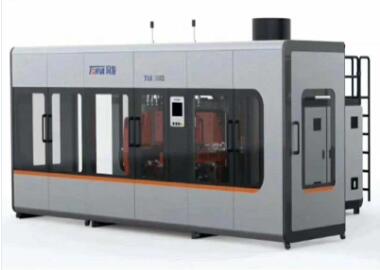What safety precautions should be taken when working with plastic machinery
2023-10-30
Working with plastic machinery involves various risks, and it's essential to prioritize safety to prevent accidents and injuries. Here are some key safety precautions that should be taken when working with plastic machinery:
1. Training: Ensure that all personnel operating or maintaining plastic machinery have received proper training. Training should cover machine operation, emergency procedures, and safety protocols.
2. Personal Protective Equipment (PPE): Provide and require the use of appropriate PPE, such as safety glasses, hearing protection, gloves, and safety shoes, based on the specific hazards associated with the machinery.
3. Machine Guards: Make sure all moving parts and potential pinch points are adequately guarded to prevent contact with machinery components during operation. Guards should not be removed or bypassed.
4. Emergency Stops: Ensure that the machinery is equipped with emergency stop buttons and that personnel know how to use them. Emergency stops should be easily accessible and clearly labeled.
5. Lockout/Tagout (LOTO): Implement lockout/tagout procedures to de-energize machinery during maintenance or repair work. Lockout devices should be used to isolate energy sources and prevent accidental startup.
6. Ventilation: Proper ventilation should be in place to remove fumes or dust generated during plastic processing, especially in processes like extrusion and injection molding. Ventilation systems should meet safety standards.
7. Material Handling: Safely handle and transport plastic materials, especially in granular or powdered form. Use appropriate tools and equipment, such as hoists and forklifts, to prevent manual lifting and potential injuries.
8. Machine Stability: Ensure that machinery is properly anchored and stable. Unstable or improperly secured machinery can cause accidents.
9. Fire Safety: Be aware of fire hazards associated with plastic processing, particularly with machinery that generates heat. Ensure the availability of fire extinguishers, and establish fire safety protocols.
10. Respiratory Protection: If working with plastic materials that emit fumes or dust, provide respiratory protection as necessary to prevent inhalation hazards.
11. Regular Maintenance: Perform routine maintenance checks on the machinery to ensure that it is in good working condition. This includes inspecting safety systems, electrical components, and hydraulic systems.
12. Electrical Safety: Ensure that electrical components and wiring are in good condition and that the machinery is properly grounded. Follow electrical safety procedures and maintain electrical panels and controls.
13. Noise Protection: Protect personnel from excessive noise levels generated by machinery by providing hearing protection and noise-reducing measures.
14. Personal Hygiene: Encourage good personal hygiene practices, including regular handwashing, to prevent contamination of plastics and reduce the risk of skin-related issues.
15. Ergonomics: Consider ergonomic factors when designing workstations and handling materials to reduce the risk of repetitive strain injuries and musculoskeletal problems.
Remember that safety is an ongoing effort. Regularly review and update safety protocols, conduct safety audits, and involve employees in safety discussions to identify and mitigate potential hazards associated with plastic machinery. Prioritizing safety is crucial to protecting the well-being of workers and preventing accidents in plastic manufacturing environments.



